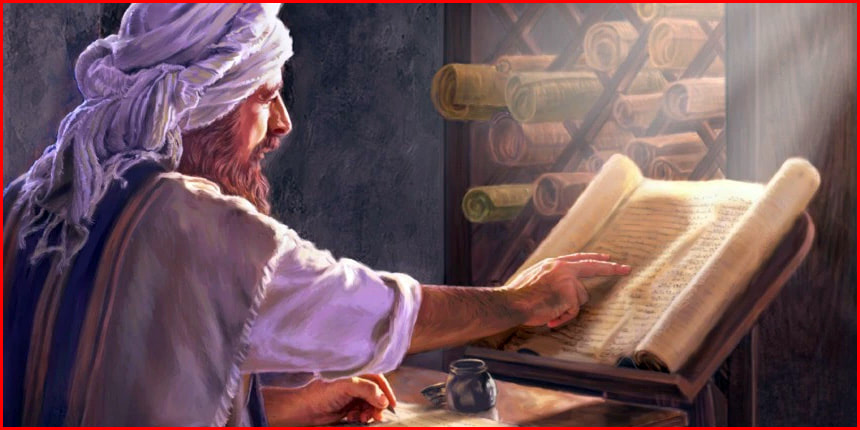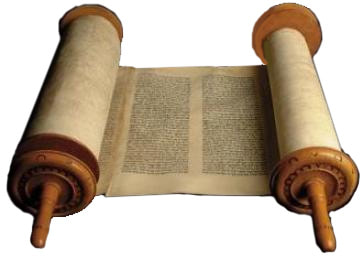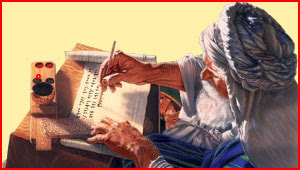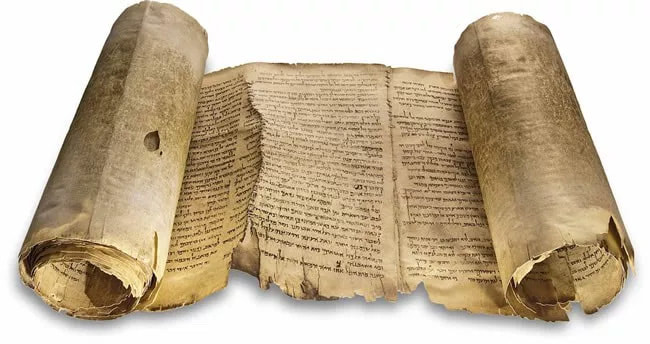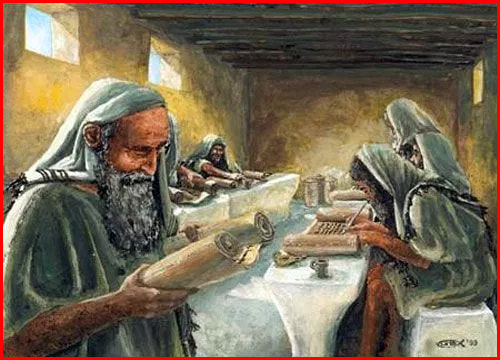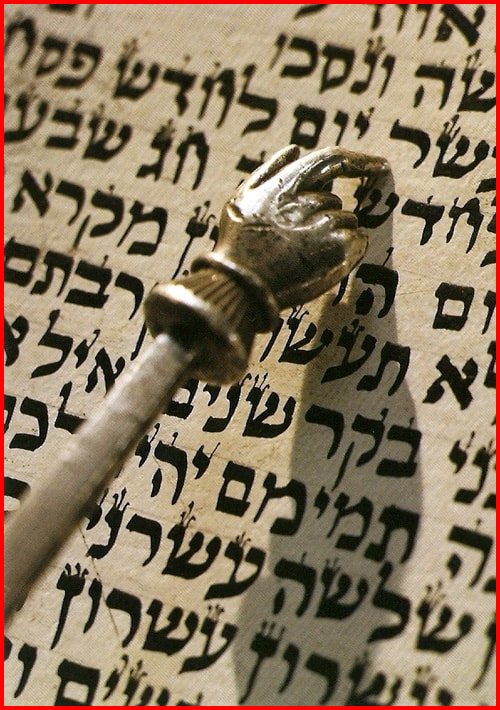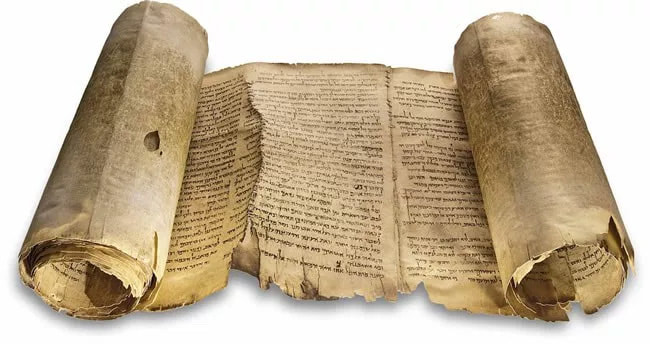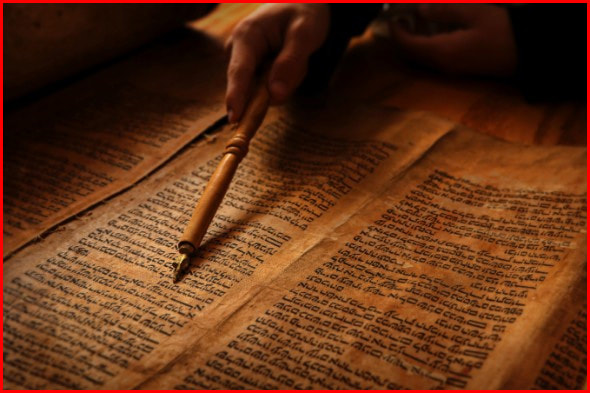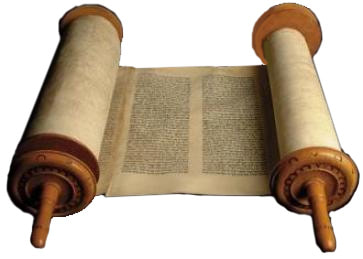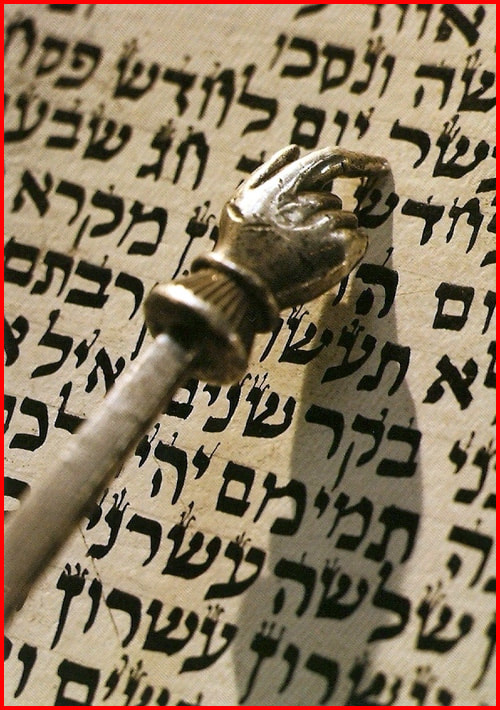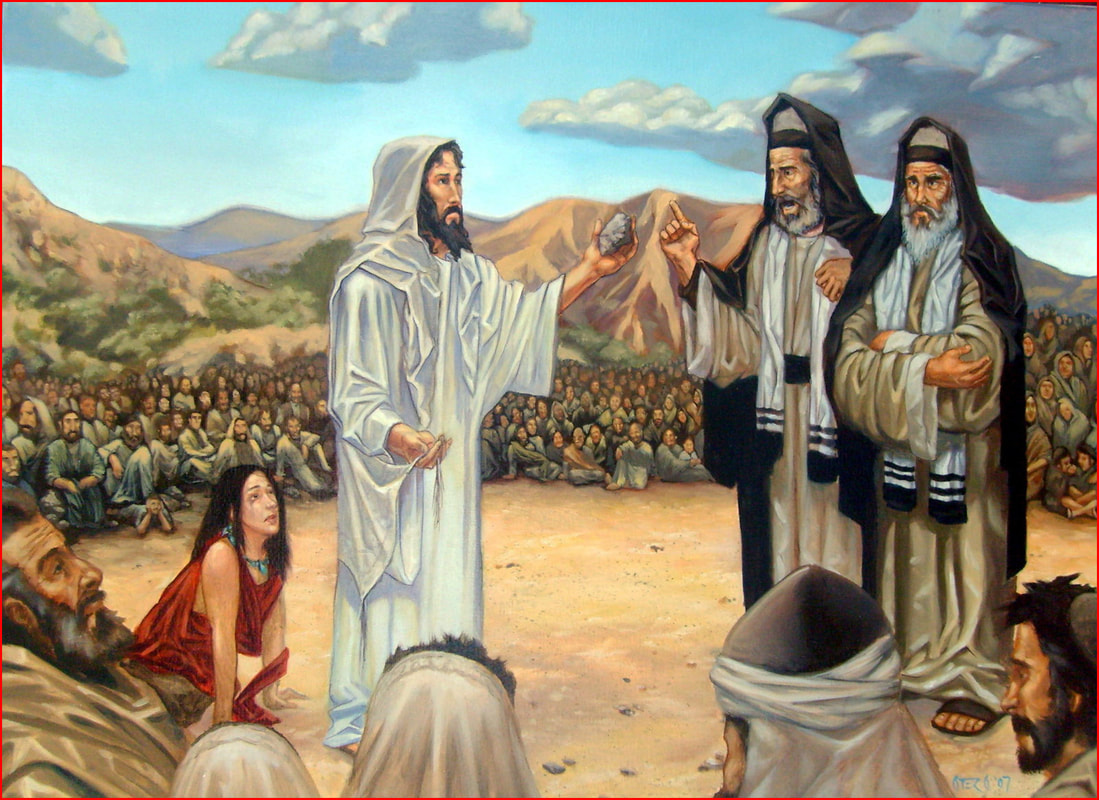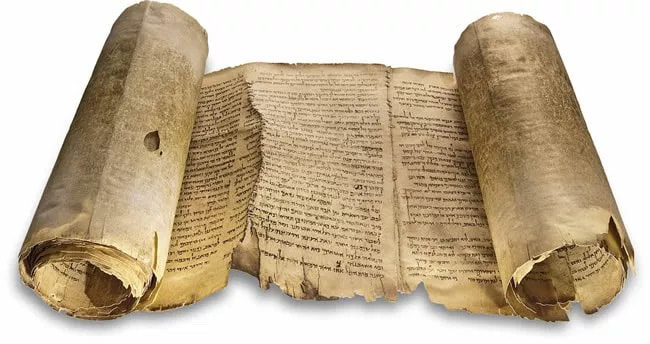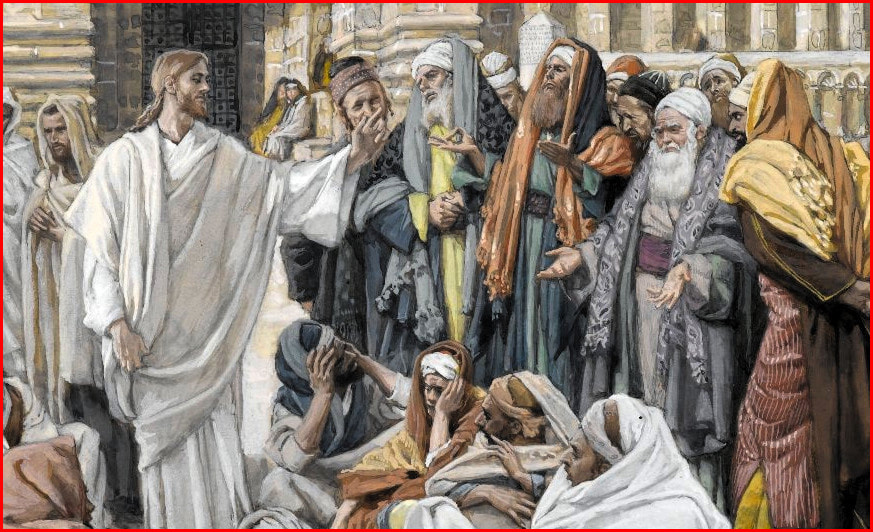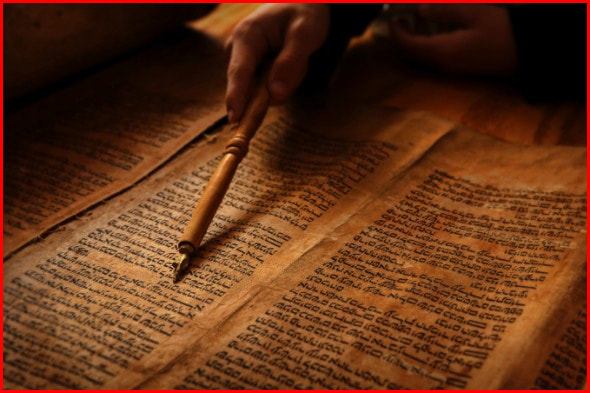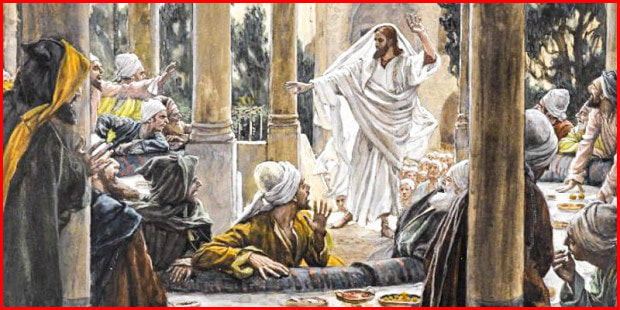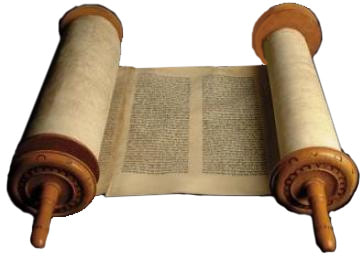| Devotion to Our Lady |
|
- Homepage
-
Daily Thoughts
- 2023 October Daily Thoughts
- Daily Thoughts Lent 2020
- Daily Thoughts for Advent 2019
- Daily Thoughts for October 2019
- Daily Thoughts for September 2019
- Daily Thoughts for August 2019
- Daily Thoughts for July
- Daily Thoughts for June
- Daily Thoughts for Easter 2019
- Daily Thoughts for Lent 2019
- Daily Thoughts for Christmas
- Daily Thoughts Easter 2022
- Sacred Heart
- Holy Ghost
-
Spiritual Life
- Holy Mass Explained
- First Friday Devotions
- First Saturday Devotions
- The Mercy of God
- Vocations
- The Path Everyone Must Walk >
- Gift of Failure
- Halloween or Hell-O-Ween?
- Ignatian Spiritual Exercises >
- Meditation is Soul-Saving
- Spiritual Communion
- Miraculous Medal
- Enrollment in Miraculous Medal
- St. Benedict Medal
- Holy Water
- Advice on Prayer
- Your Daily Mary
-
Prayers
- September Devotions
- Seven Sorrows of Our Lady
-
Novenas
>
- NV-Help of Christians
- NV-Nativity of Our Lady
- NV-Seven Sorrows
- NV- Sorrowful Heart
- NV-Pope St Pius X
- NV-La Salette
- NV-St Michael Archangel
- NV-Immaculate Heart
- NV-Assumption
- NV-Novena for Fathers
- NV-Novena for Your Mother
- NV-St Raphael Archangel
- NV-Souls in Purgatory
- NV-All Saints Day
- NV-Christ the King
- NV-Divine Motherhood
- NV-Guardian Angels
- NV-Rosary
- NV-Mirac Med
- NV- Imm Conc
- NV - Guadalupe
- NV - Nativity of Jesus
- NV-Epiphany
- NV-OL Good Success
- NV-Lourdes
- NV-St Patrick
- NV-St Joseph
- NV-Annunciation
- NV-St Louis de Montfort
- NV-OL Good Counsel
- NV-Last Supper
- NV-Passion
- NV-Pentecost
- NV-Ascension
- NV-Sacred Heart
- NV-Sacred Heart & Perpetual Help
- NV-Corpus Christi
- NV-OL of Perpetual Help
- NV-Queenship BVM
- NV-OL of Mount Carmel
- NV-St Mary Magdalen
- NV- Im Hrt
- August Devotions to IHM
- Immaculate Heart of Mary
- Litany of Dependence
- Prayers to St Mary Magdalen
- Prayers in Times of Sickness Disease & Danger
- Holy Souls in Purgatory
- Meditations on the Litany of Our Lady
- Special Feast Days
- Prayers to Mary (Mon-Sun)
- Litanies to Our Lady >
- Various & Special Needs
- Our Lady of the Rosary
- Our Lady of Mt. Carmel
- Our Lady of Perpetual Help
- Our Lady of Guadalupe
- Other titles of Our Lady
-
Rosary
- Downloads
- Consecration
- Easter Season
-
Holy Week
- Last Seven Words of Jesus >
- Characters of Passion >
- The Last Days of Christ
- Before Palm Sunday
- Palm Sunday
- Monday in Holy Week
- Tuesday in Holy Week
- Wednesday in Holy Week
- Holy Thursday (Last Supper)
- Holy Thursday (Agony & Arrest)
- Night Vigil with Christ
- Good Friday (Pilate & Herod)
- Good Friday (Way of Cross & Crucifixion)
- Saturday in Holy Week
-
Lent
- Ideas for Lent
- Daily Lenten Planner
- Daily Lenten Liturgy
- From Cold to Hot
- Lent with Aquinas
- Lent with Dom Gueranger
- Virtues for Lent
- History of Penance
- How Expensive is Sin?
- Confession of Sins
- Letter to Friends of the Cross
- Sermons for Lent
- Stations of the Cross >
- Lenten Prayers
- 7 Penitential Psalms
- Lenten Psalms SUN
- Lenten Psalms MON
- Lenten Psalms TUE
- Lenten Psalms WED
- Lenten Psalms THU
- Lenten Psalms FRI
- Lenten Psalms SAT
- Lenten Laughs
- Septuagesima
-
Christmas
- Epiphany Explained
- Suggestions for Christmas
- Food For Thought
- Christmas with Aquinas
- Christmas with Dom Gueranger
- Christmas Prayers
- Candles & Candlemas
- Christmas Sermons
- Christmas Prayers SUN
- Christmas Prayers MON
- Christmas Prayers TUE
- Christmas Prayers WED
- Christmas Prayers THU
- Christmas Prayers FRI
- Christmas Prayers SAT
- Twelve Days of Christmas >
-
Advent Journey
- Purgatory
- Christ the King
- Legion of Mary
- Scapular
-
Saints
-
Martyrs for the Faith
>
- Your Daily Martyr >
- All 365 Days of Martyrs
- Cristeros
- St Valentine & Valentine's Day
- Martyrs--Thomas Becket
- Martyrs--John the Apostle
- Holy Machabees
- Age of Martyrdom
- Carmelites of Compiegne
- Martyrs--Peter & Paul
- Martyrs--John the Baptist
- Martyrs--Andrew
- Martyrs--James the Great
- Martyrs--North American
- Martyrs--Seven Holy Sleepers
- Martyrs--Afra
- School of Martyrdom
- Martyrs--Christina
- Desert Saints >
- Saints for Sinners >
- Saints of Mary >
- History of All Saints Day
-
Martyrs for the Faith
>
- Precious Blood
- Synod 2023
-
Catechism
- Catechism Lesson 1
- Catechism Lesson 2
- Catechism Lesson 3
- Catechism Lesson 4
- Catechism Lesson 5
- Catechism Lesson 6
- Catechism Lesson 7
- Catechism Lesson 8
- Catechism Lesson 9
- Catechism Lesson 10
- Catechism Lesson 11
- Catechism Lesson 12
- Catechism Lesson 13
- Catechism Lesson 14
- Catechism Lesson 15
- Catechism Lesson 16
- Catechism Lesson 17
- Catechism Lesson 18
- Catechism Lesson 19
- Catechism Lesson 20
- Catechism Lesson 21
- Catechism Lesson 22
- Bible Study
-
Calendar
- Miracles
- Apparitions
- Shrines
- Prophecies
- Angels Homepage
- Hell
-
Church Crisis
- Conspiracy Theories
- Amazon Synod 2019 >
- Liberalism & Modernism
- Modernism--Encyclical Pascendi
- Modernism & Children
- Modernism--Documents
- The Francis Pages
- Church Enemies on Francis
- Francis Quotes
- Amoris Laetitia Critique
- Danger of Ignorance (Pius X)
- Restore all In Christ (Pius X)
- Catholic Action (Pius X)
- Another TITANIC Disaster?
- The "Errors of Russia"
- CRISIS PRAYERS
- Election Novena 2024
- The Anger Room
- War Zone
- Life of Mary
- Spiritual Gym
- Stupidity
- Coronavirus and Catholicism
- History & Facts
- Books
- Catholic Family
- Children
- Daily Quiz
-
Novena Church & Pope
- Day 01 Church-Pope Novena
- Day 02 Church-Pope Novena
- Day 03 Church-Pope Novena
- Day 04 Church-Pope Novena
- Day 05 Church-Pope Novena
- Day 06 Church-Pope Novena
- Day 07 Church-Pope Novena
- Day 08 Church-Pope Novena
- Day 09 Church-Pope Novena
- Day 10 Church-Pope Novena
- Day 11 Church-Pope Novena
- Day 12 Church-Pope Novena
- Day 13 Church-Pope Novena
- Day 14 Church-Pope Novena
- Day 15 Church-Pope Novena
- Day 16 Church-Pope Novena
- Day 17 Church-Pope Novena
- Day 18 Church-Pope Novena
- Day 19 Church-Pope Novena
- Day 20 Church-Pope Novena
- Day 21 Church-Pope Novena
- Day 22 Church-Pope Novena
- Day 23 Church-Pope Novena
- Day 24 Church-Pope Novena
- Day 25 Church-Pope Novena
- Day 26 Church-Pope Novena
- Day 27 Church-Pope Novena
- Day 28 Church-Pope Novena
- Day 29 Church-Pope Novena
- Day 30 Church-Pope Novena
- Day 31 Church-Pope Novena
- Day 32 Church-Pope Novena
- Day 33 Church-Pope Novena
- Day 34 Church-Pope Novena
- Day 35 Church-Pope Novena
- Day 36 Church-Pope Novena
- Day 37 Church-Pope Novena
- Day 38 Church-Pope Novena
- Day 39 Church-Pope Novena
- Day 40 Church-Pope Novena
- Day 41 Church-Pope Novena
- Day 42 Church-Pope Novena
- Day 43 Church-Pope Novena
- Day 44 Church-Pope Novena
- Day 45 Church-Pope Novena
- Day 46 Church-Pope Novena
- Day 47 Church-Pope Novena
- Day 48 Church-Pope Novena
- Day 49 Church-Pope Novena
- Day 50 Church-Pope Novena
- Day 51 Church-Pope Novena
- Day 52 Church-Pope Novena
- Day 53 Church-Pope Novena
- Day 54 Church-Pope Novena
- Penance Novena
- Daily WeAtheR Forecast
The Greatest and Most Important Week in the Church's Liturgical Year
CLICK ON ANY HOLY WEEK LINK BELOW
Also lots of LENTEN & HOLY WEEK DOWNLOADS on the downloads page (click here)
LITURGICAL PRAYERS FOR EACH DAY OF THE WEEK DURING LENT
| Sundays of Lent | Mondays of Lent | Tuesdays of Lent | Wednesdays of Lent | Thursdays of Lent | Fridays of Lent | Saturdays of Lent |
HOLY WEEK PAGES
| Daily Thoughts | Holy Week Main Page | Before Palm Sunday | Palm Sunday | Last Days of Christ |
| Holy Thursday Last Supper Novena | Good Friday Passion Novena |
| Monday of Holy Week | Tuesday of Holy Week | Wednesday of Holy Week | Holy Thursday (Last Supper) | Holy Thursday (Agony & Arrest) |
| Night Vigil With Christ | Good Friday (Pilate & Herod) | Good Friday (Way of Cross & Crucifixion) | Holy Saturday |
THE CHIEF CHARACTERS OF THE PASSION
| Characters of the Passion Mainpage | The Sanhedrin | Pharisees | Scribes | Saducees | Jewish Crowd | Roman Rulers |
| Judas | Annas & Caiphas | Pontius Pilate | Herod | Barabbas | Dismas the Good Thief | St. Peter | St. John | Mary Magdalen |
THE FOURTEEN STATIONS OF THE CROSS
| Introduction to the Stations of the Cross | Short Version of the Stations of the Cross (all 14 on one page) | 1st Station | 2nd Station | 3rd Station |
| 4th Station | 5th Station | 6th Station | 7th Station | 8th Station | 9th Station | 10th Station | 11th Station | 12th Station | 13th Station | 14th Station |
THE LAST SEVEN WORDS OF JESUS FROM THE CROSS
| Seven Last Words on the Cross (Introduction) | The 1st Word on the Cross | The 2nd Word on the Cross | The 3rd Word on the Cross |
| The 4th Word on the Cross | The 5th Word on the Cross | The 6th Word on the Cross | The 7th Word on the Cross |
PRAYERS AND DEVOTIONS TO THE SEVEN SORROWS OF OUR LADY
| Seven Sorrows Meditations | Short Prayers & Short Seven Sorrows Rosary | Longer Seven Sorrows Rosary |
| 1st Sorrow of Our Lady | 2nd Sorrow of Our Lady | 3rd Sorrow of Our Lady | 4th Sorrow of Our Lady |
| 5th Sorrow of Our Lady | 6th Sorrow of Our Lady | 7th Sorrow of Our Lady |
| Novena #1 to the Sorrowful Heart of Mary | Novena #2 to the Sorrowful Heart of Mary |
LENTEN PAGES
| ASH WEDNESDAY COUNTDOWN | LENT (MAIN PAGE) | DAILY THOUGHTS | DAILY LENTEN LITURGY | DAILY LENTEN PLANNER |
| LENTEN PRAYERS | THE 7 PENITENTIAL PSALMS | IDEAS FOR PENANCE | LENT WITH AQUINAS | LENT WITH DOM GUERANGER |
| HISTORY OF PENANCE | PENANCES OF THE SAINTS | HOW EXPENSIVE IS SIN? | CONFESSION OF SINS | ARE FEW SOULS SAVED? |
| VIRTUES FOR LENT | FROM COLD TO HOT | LENTEN LAUGHS | SERMONS FOR LENT | LETTER TO FRIENDS OF THE CROSS |
| STATIONS OF THE CROSS (INDIVIDUALLY) | ALL 14 STATIONS OF THE CROSS |
| THE LAST DAYS OF CHRIST | SPECIAL HOLY WEEK PAGES |
CLICK ON ANY HOLY WEEK LINK BELOW
Also lots of LENTEN & HOLY WEEK DOWNLOADS on the downloads page (click here)
LITURGICAL PRAYERS FOR EACH DAY OF THE WEEK DURING LENT
| Sundays of Lent | Mondays of Lent | Tuesdays of Lent | Wednesdays of Lent | Thursdays of Lent | Fridays of Lent | Saturdays of Lent |
HOLY WEEK PAGES
| Daily Thoughts | Holy Week Main Page | Before Palm Sunday | Palm Sunday | Last Days of Christ |
| Holy Thursday Last Supper Novena | Good Friday Passion Novena |
| Monday of Holy Week | Tuesday of Holy Week | Wednesday of Holy Week | Holy Thursday (Last Supper) | Holy Thursday (Agony & Arrest) |
| Night Vigil With Christ | Good Friday (Pilate & Herod) | Good Friday (Way of Cross & Crucifixion) | Holy Saturday |
THE CHIEF CHARACTERS OF THE PASSION
| Characters of the Passion Mainpage | The Sanhedrin | Pharisees | Scribes | Saducees | Jewish Crowd | Roman Rulers |
| Judas | Annas & Caiphas | Pontius Pilate | Herod | Barabbas | Dismas the Good Thief | St. Peter | St. John | Mary Magdalen |
THE FOURTEEN STATIONS OF THE CROSS
| Introduction to the Stations of the Cross | Short Version of the Stations of the Cross (all 14 on one page) | 1st Station | 2nd Station | 3rd Station |
| 4th Station | 5th Station | 6th Station | 7th Station | 8th Station | 9th Station | 10th Station | 11th Station | 12th Station | 13th Station | 14th Station |
THE LAST SEVEN WORDS OF JESUS FROM THE CROSS
| Seven Last Words on the Cross (Introduction) | The 1st Word on the Cross | The 2nd Word on the Cross | The 3rd Word on the Cross |
| The 4th Word on the Cross | The 5th Word on the Cross | The 6th Word on the Cross | The 7th Word on the Cross |
PRAYERS AND DEVOTIONS TO THE SEVEN SORROWS OF OUR LADY
| Seven Sorrows Meditations | Short Prayers & Short Seven Sorrows Rosary | Longer Seven Sorrows Rosary |
| 1st Sorrow of Our Lady | 2nd Sorrow of Our Lady | 3rd Sorrow of Our Lady | 4th Sorrow of Our Lady |
| 5th Sorrow of Our Lady | 6th Sorrow of Our Lady | 7th Sorrow of Our Lady |
| Novena #1 to the Sorrowful Heart of Mary | Novena #2 to the Sorrowful Heart of Mary |
LENTEN PAGES
| ASH WEDNESDAY COUNTDOWN | LENT (MAIN PAGE) | DAILY THOUGHTS | DAILY LENTEN LITURGY | DAILY LENTEN PLANNER |
| LENTEN PRAYERS | THE 7 PENITENTIAL PSALMS | IDEAS FOR PENANCE | LENT WITH AQUINAS | LENT WITH DOM GUERANGER |
| HISTORY OF PENANCE | PENANCES OF THE SAINTS | HOW EXPENSIVE IS SIN? | CONFESSION OF SINS | ARE FEW SOULS SAVED? |
| VIRTUES FOR LENT | FROM COLD TO HOT | LENTEN LAUGHS | SERMONS FOR LENT | LETTER TO FRIENDS OF THE CROSS |
| STATIONS OF THE CROSS (INDIVIDUALLY) | ALL 14 STATIONS OF THE CROSS |
| THE LAST DAYS OF CHRIST | SPECIAL HOLY WEEK PAGES |
THE SCRIBES
|
Who Were the Scribes? Here are Some Scribblings on the Scribes!
A Scribe is literally someone who writes. The name “Scribe” is derived from the Hebrew sepher, or sofer and soferim, which is Hebrew for “book” and means “scripturalists” ― those who explained and copied the Law. The original meaning of the Hebrew word “soferim” was “people who know how to write” and, therefore, the royal officials who were occupied in recording in the archives the proceedings of each day were called Scribes (2 Kings 8:17; 4 Kings 19:2 ff.); but as the art of writing was known only to the intelligent, the term “Scribe” became synonymous with “wise man” (1 Paralipomenon 27:32). In Old Testament times a Scribe was a “wise man”, a “sage”—an educated man who had been taught to think clearly and concisely. The education of Scribes in ancient Israel was supported at least in part by the state and the Temple cult, although some scribal arts could have been taught within a small number of families. The Scribes of ancient Israel were a tiny literate minority in an overwhelmingly illiterate and oral-based culture. Later, in the time of Esdras, the label “Scribe” was applied to the body of teachers who interpreted the Law to the people. The Scribes were the copyists of Scripture and teachers of the Law. Their functions were to copy, read amend, explain, and protect the Law. Modern scholars are divided concerning the existence of scribal schools in Israel during the Iron Age (1200–539 BC). But the eventual standardization of the Hebrew letter forms and writing system, between the eighth and sixth centuries BC, would presumably have given rise to codified rules and principles of language that Scribes would then have learned. The Scribes date as a distinct body from the period of Esdras. Not a Sect, But a Profession The Scribes were not a sect but a profession. “Scribe” is the name of a qualification and a term of belonging to a particular party, group or sect. To put it in modern terms, you could say that the Scribe was a “lawyer” by profession—and like any lawyer today, he could be a Republican, Democrat, Conservative, Liberal, Capitalist, Communist, American, Englishman, Irishman, Italian, German, etc. Thus, some Scribes were from the ranks of intelligent Pharisees, other Scribes were from the ranks of intelligent Sadducees, etc. In theory, not all Scribes were Pharisees, as in practice not all Pharisees were Scribes. A few Scribes were priests, some were Sadducees, but most Scribes were Pharisees. They were the most learned of the Pharisaic party, professional experts whose teachings and counsels the Pharisees followed. We must give Scribes and Pharisees their due: they knew that only through observance of the religious Law could the purity of Israel be preserved. Paid and Unpaid Scribes Being a Scribe did not necessarily bring remuneration and many Scribes also had a trade in order to survive and live. Professional Scribes were paid by the line, and the usual rule was to make each line about as long as the average line of a modern printed page. Longer lines would have been harder to read. Paul’s Scribe, Tertius, would have provided himself with pens and ink. His pens were made of reeds, pointed and split like our pens today. Without doubt he must have prepared three or four of them, so as not to keep Paul waiting while he mended pens. There were no spaces between the words in Tertius’ letter, and almost no punctuation marks. Scribes Were Learned, Well Educated Men Scribes in ancient Israel were learned men whose business was to study the Law, transcribe it, and write commentaries on it. It was these Scribes who put their people’s oral traditions into writing, who edited independent stories into books, and who created new compositions. They filled important diplomatic and administrative posts in the state and were counsellors to the kings. They were scholars learned in the Law, who lectured on it in synagogues, taught it in schools, debated it in public and private, and applied it in judgment on specific cases. The Scribe keeps record of work done and goods paid, of prices and costs, of profits and loss; he counts the cattle as they move to the slaughter, or corn as it is measured out in sale, he draws up contracts and wills, and makes out his master’s income tax. The Need For Scribes In ancient times the Scribes were Jewish officers who performed duties which included various kinds of writing. A Scribe would hold a key position in the administration of justice, government and education. Other Scribes, such as the record-keepers, “historians,” and letter-writers in the royal palaces and urban administrative centers, were affiliated with the ancient equivalent of professional guilds. However, after the Jews returned from exile and captivity in Babylon, they no longer had kings, nor were they in any way a political entity, but they were still God’s “Chosen People”. Their religious identity had become the most important thing to them. Esdras organized the Scribes into an entity with an overriding purpose. These Scribes became the interpreters and copyists of God’s Law. Among these duties, they copied the Pentateuch or Torah (meaning, the first five books of the Bible), the Phylacteries, and the Mezuzoth (Deuteronomy 6:9). Studying the Torah, the Law, the core of which is the Ten Commandments and the Pentateuch―which is the first five books of the Old Testament that contain the written Law ― was of vital importance. The thinking was that even though the Torah expressed great theoretical principles for living, nevertheless practical guidance for everyday living had to be found. The Scribes of the New Testament were the experts in the Law, who drew out, from the Torah and the Pentateuch, rules and regulations for every possible situation. This became the “Oral Law”, the “Tradition of the Elders” ― meaning “the Ancients.” It was never written down and had to be memorized. The training was long and it is thought that the minimum age for official recognition to be allowed to do begin this memorization was put at the age of forty. These Scribes became the interpreters and copyists of God’s Law. Among these duties, they copied the Pentateuch or Torah (meaning, the first five books of the Bible), the Phylacteries, and the Mezuzoth (Deuteronomy 6:9). Once the Canon of Old Testament Scripture was complete, and inspiration of the prophetic period in Old Testament times had been accomplished, we need to trace the degeneration of these men known as “Scribes” and the position of power by which they assumed. The Pharisaic representation on the Sanhedrin, the High Court of the Jews, would have been Scribes. Some of them appear to have belonged to the priestly class, a landless tribe with the time and resources to engage in literary activities. Meticulous Perfection The Scribes took their job of preserving Scripture very seriously―they would copy and recopy the Bible meticulously, even counting letters and spaces to ensure each copy was correct. They were extremely meticulous in making sure that no words were left out that belonged to the text, nor any words admitted improperly. They were so careful in their copying that they counted every letter, and then compared the total number of the document with that which they were copying from. If the numbers of their copy did not match the original copy, then they burned what they had done and started all over again! We can thank the Jewish Scribes for preserving the Old Testament portion of our Bibles. Jews became increasingly known as “the people of the Book” because of their faithful study of Holy Scripture, particularly the Law and how it should be followed. In the New Testament era, Scribes were often associated with the sect of the Pharisees, although not all Pharisees were Scribes (see Matthew 5:20; 12:38). They were teachers of the people (Mark 1:22) and interpreters of the Law. They were widely respected by the community because of their knowledge, dedication, and outward appearance of Law-keeping. The Oral Was More Popular Than The Written Even after some of the earliest portions of what later became Scripture were committed to writing (perhaps in the eighth to seventh centuries BC), orality was still the primary means of transmitting the material that would eventually become the Hebrew Bible. In truth, the oral/aural tradition continued to be the dominant means by which most people encountered “Scripture” throughout the biblical period and beyond. Most people did not read the texts that would become parts of the Bible, but rather heard them. Literacy rates in the ancient Near East, including Israel, were extremely low—between 5% and 15% of the total population, with urban centers averaging higher percentages. And while the vast majority of literate individuals and Scribes appear to have been men from the upper end of the socioeconomic and societal spectrum, texts recovered from ancient Mesopotamia and Egypt indicate that women—daughters of Scribes, or members of the royal entourage–occasionally also functioned as Scribes. History reveals that foreign influences pervaded the land of Judea throughout the Inter-Testamental period (the years between the writing of the last Old Testament book and the first New Testament Book), and onward to the Christian era. Greek culture and Hellenization threatened the very existence of Judaism and the Chosen People, so the Jewish religious leaders determined that the Law needed to be preserved with the most jealous care. In order to preserve the Law of God, it needed to be studied carefully, and all of its precepts needed to be given application according to the ever-changing way of public and private life in Israel. By developing a system of rules for people to follow, they forgot the heart and spirit of the Law. Their prescriptions did not allow anyone the freedom to truly seek the Lord God. It seems as though the two main principles of the Scribes were, first, the multiplying of oral traditions in putting a fence around the Law. Second, their interpretation and exposition of Scripture had utterly destroyed its original meaning. Instead of honoring the Law, in reality they were destroying it. Personal Interpretations Creep In These Scribes would read the Torah in the synagogues, give commentary, and lecture their disciples. The Scribes were also called “lawyers” and the “doctors of the Law”. They were all highly educated from a young age, and at an appropriate time (some say by the age of 30) they were elected to office. They were not only copyists of the Law, but they were also the preservers of the oral tradition, which included the commentaries and additions to the Law. This oral tradition accumulated over the course of time into a great mass, and was regarded by most to be equal or even greater than the Law itself. It was these oral traditions, many of which were man-made creations and not of God, that Jesus so often attacked: “And the Pharisees and Scribes asked Jesus: ‘Why do not Thy disciples walk according to the tradition of the ancients, but they eat bread with common hands?’ But Jesus answering, said to them: ‘Well did Isaias prophesy of you hypocrites, as it is written: “This people honoureth Me with their lips, but their heart is far from Me. And in vain do they worship Me, teaching doctrines and precepts of men!” For leaving the commandment of God, you hold the tradition of men, the washing of pots and of cups: and many other things you do like to these!’ And Jesus said to them: ‘Well do you make void the commandment of God, that you may keep your own tradition. For Moses said: “Honor thy father and thy mother; and He that shall curse father or mother, dying let him die!” But you say: “If a man shall say to his father or mother, Corban, (which is a gift,) whatsoever is from me, shall profit thee!” And further you suffer him not to do anything for his father or mother, making void the word of God by your own tradition, which you have given forth. And many other such like things you do!’” (Mark 7:5-13). Even Paul the apostle spoke of himself as having been at one time ”exceedingly zealous of the traditions” of his fathers (Galatians 1:14). The Scribes also developed “forced” interpretations of the Law, attempting to find a hidden meaning in every word, syllable, and letter. Jesus charged them saying: ”Woe unto you, lawyers! For you have taken away the key of knowledge, you entered not in yourselves, and those that were entering in you hindered!” (Luke 11:52). During the time of Jesus Christ the Jewish people were very dependent upon the Scribes. The language of the Jews was passing into the Aramaic dialect, and most of the people were unable to understand their own Torah, and gladly excepted the interpretation which was given by the Scribes. Scribes Were Looked Upon as “Quasi-Prophets” From being transcribers and expounders of the Law, they supplied, after the captivity, the place of the prophets and the inspired oracles, which had ceased; and from them arose those glosses and interpretations which our Lord rebukes under the term “traditions.” A Pharisee, as a Scribe, was a man especially trained as an expert in the Torah. After the required period of preparation, he could be authorized as an official interpreter of the Law. The most distinguished position of the day was that of a Scribe. He wore a special long robe and was always given a seat of honor at public gatherings, such as the synagogue, in the marketplace, and at weddings; they were looked up as living models to be followed. Scribe denoted, par excellence, the man of the Law, whether priest or layman, Pharisee or Sadducee. The Man of the Book―one skilled in the Law, and the title of honor, Rabbi (Great One) was reserved for him. The true “spiritual father” of the people was no longer the priest, but the Scribe. The Scribes always took refuge in the ancients, and it was their ideal to transmit, without adding or omitting anything, the teachings they had received. Jesus, on the other hand, was opening treasures to which he alone had the key and over which He alone had the authority. Before Jesus “came on the scene”, no teacher of the first order arose to continue the stream of revelation that had dried up with death of the last of the prophets, but in his place appeared that lower order of mind to which the letter of the Law means everything, and upon which the spirit never breathes. The Scribes sat in the seat of the prophets, and revelation of God’s Word was succeeded by the mere exposition or explanation of it. The Pharisees held that God continued speaking through the prophets, thus bringing the inspired word on to Malachi, the last of them; and that God spoke still through the commentators of the Law, the Scribes, who were content to interpret Moses and the prophets; their key phrase that as used being, “thus it is written”. The Scribes were theologians and jurists at the same time. The Scribes were the voice of tradition. Jesus was His own voice. Their business was to study and interpret, as well as copy, the Scriptures. Because of their minute acquaintance with the Law, they were also called lawyers, and were recognized authorities. The decisions of leading Scribes became “Oral Law”, or “tradition.” Scribes and interpreters of the Law became men of importance, for the average person wanted to hear what the Scriptures contained. Most Scribes were affiliated with a particular school of thinking, headed by a famous rabbi who was surrounded by a circle of disciples, or devoted followers. There were many scribal schools in Palestine in the first century, most of them based in Jerusalem. It was not unusual for followers of different schools to engage in heated public discussions over a particular point of the Law. The courtyard of the Temple and other public places were often the scenes of such discussions. Unlike the hereditary ancestral and financial status of the Sadducees, the authority of the Scribes rested upon their learning. Anyone who wished could try to become a member of this venerated class, but he had to devote years of study to that end. A ‘would-be’ Scribe had already mastered the Law and achieved a thorough familiarity with the Scriptures by the age of 14. Thereafter he spent many years in close association with a recognized Scribal teacher, receiving a lengthy instruction in personal contact and application of the Law in everyday situations. Only at about the age of 40 would he be formally ordained as a Scribe in his own right, and, from that time on, he could be addressed as “Rabbi” (meaning: “Great One”). Difference Between Jesus and Scribes One difference between the Scribes and Jesus, was that the Scribes always quoted a previous great legal authority for their decisions and teaching. Jesus taught with his own personal authority without quoting or referring to any experts. This was unacceptable in the eyes of Jewish religious leaders. The people were amazed by the authority in which Jesus spoke: ”I say unto you”. The next point of contention between the Scribes and Jesus was that the Scribes had little patience with sinners, while Jesus enjoyed mingling with the people and encouraging them that God loves them regardless of their sins—not to condone their sins, but to draw them to repentance and salvation: ”Go, then, and learn what this meaneth: ‘I will have mercy and not sacrifice!’ For I am not come to call the just, but sinners!” (Matthew 9:13). ”I came not to call the just, but sinners to penance!”(Luke 5:32). ”For the Son of man is come to seek and to save that which was lost!” (Luke 19:10). Another point of contention was that the Scribes went beyond interpretation of Scripture and added many man-made traditions to what God had said. They became professionals at spelling out the letter of the Law while ignoring the spirit behind it. Things became so bad that the regulations and traditions the Scribes added to the Law were considered more important than the Law itself. This led to many confrontations between Jesus and the Pharisees and Scribes. At the beginning of the Sermon on the Mount, Jesus shocked His audience by declaring that the righteousness of the Scribes was not enough to get anyone to Heaven (Matthew 5:20). A large portion of Jesus’ sermon then dealt with what the people had been taught (by the Scribes) and what God actually wanted (Matthew 5:21–48). Toward the end of Jesus’ ministry, He thoroughly condemned the Scribes for their hypocrisy (Matthew 23). They knew the Law, and they taught it to others, but they did not obey it. The Scribes’ original aim was in earnest and sincere—to know and preserve the Law and encourage others to keep it. But things turned horribly wrong when man-made traditions overshadowed God’s Word and a pretense of holiness replaced a life of true godliness. The Scribes, whose stated goal was to preserve the Word, actually nullified it by the traditions they handed down (Mark 7:13). How did things get so far off course? Probably because the Jews, after surviving centuries of persecution and enslavement, clung in pride to the keeping of the Law and how it marked them as God’s chosen people. The Jews of Jesus’ day certainly had an attitude of superiority (John 7:49), which Jesus opposed (Matthew 9:12). The bigger problem was that the Scribes were hypocrites at heart. They were more interested in appearing good to men than they were in pleasing God. Eventually, it was these same Scribes who played a part in having Jesus arrested and crucified (Matthew 26:57; Mark 15:1; Luke 22:1–2). The lesson every Christian can learn, from the hypocrisy of the Scribes, is that God wants more than mere outward acts of ‘righteousness’. He wants an inward change of heart, one that is constantly yielding in love and obedience to Christ—which is shown by the following words of Our Lord: “Jesus therefore said to them: ‘If God were your Father, you would indeed love Me. For from God I proceeded, and came; for I came not of Myself, but he sent Me!’” (John 8:42) … “If you love Me, keep My commandments … If any one love Me, he will keep My word, and My Father will love him” (John 14:15, 23). “And why do you call Me: ‘Lord! Lord!’ and do not the things which I say?” (Luke 6:46). “Not everyone that saith to Me: ‘Lord! Lord!’ shall enter into the Kingdom of Heaven: but he that doth the will of My Father Who is in Heaven, he shall enter into the Kingdom of Heaven!” (Matthew 7:21). |
Web Hosting by Just Host

